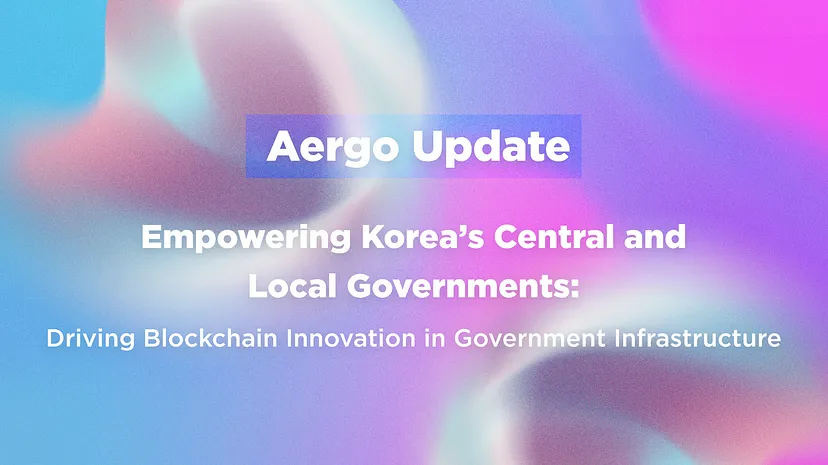Today another article from a new series of articles about the current state and development trends of the Aergo Project has been published.
You can check it out at the link below:
Cities worldwide are competing to become hubs for blockchain innovation, and the City of Daegu, South Korea, is among those taking proactive steps to position itself as a leading blockchain city.
Daegu is spearheading efforts to advance the ABB (Artificial Intelligence, Blockchain, Big Data) sector, recognized as the key driver of future growth. With a focus on bolstering blockchain technology, Daegu has established a Blockchain Technology Innovation Support Center. The center, launched in December 2023 through a public initiative by the Ministry of Science and ICT, is dedicated to nurturing projects.
Daegu Embarks on Aergo Blockchain Mainnet
Venturing into blockchain technology, Daegu has established public blockchain networks based on Aergo and Avalanche. The goal is to integrate diverse blockchain services onto a single city-level infrastructure, paving the way for the city’s evolution into a comprehensive blockchain city. Setting itself apart from other municipalities, Daegu is prioritizing the creation of blockchain-powered services including:
– Non-Fungible Tokens(NFTs),
– Security Token Offerings(STOs), and
– Decentralized Identity Verification(DID)
In line with this initiative, Aergo Foundation and the City of Daegu are actively fostering the development of Proof-of-Concept cases including intelligent mobility supply chains, electronic prescriptions, and herbal product authenticity certification.
Rising Trend of Central and Local Governments Embracing Blockchain
Daegu leads the charge as an increasing number of local governments explore integrating blockchain technology into public services. Municipal authorities are actively exploring blockchain’s potential for administrative tasks like document authentication, public records maintenance, and voting systems. By embracing blockchain, local governments aim to enhance transparency, streamline bureaucratic processes, and elevate the effectiveness of governmental functions.
Leveraging the experiences from past cases, the Aergo Foundation and its key partners, including Blocko and CCCV, are spearheading efforts to develop more comprehensive and competitive use cases based on the Aergo mainnet. Furthermore, the Aergo Foundation has been actively participating in Korea’s government-led Blockchain Trust Framework(K-BTF). This case further reinforces Aergo’s commitment to establishing a presence in the public blockchain service sector. More details regarding K-BTF will be released soon.
Previous Aergo and Blocko Cases with the Korean Central and Local Governments
- Blockchain Voting: Gyeonggi-do, one of the largest provinces of Korea, implemented a blockchain-based voting system to collect resident input on community projects, resulting in a successful vote with 9,000 participants casting their votes through both online and offline channels. With the increasing interest in blockchain-based voting, we anticipate witnessing the development of more cases in this area.
- Blockchain-based real estate administration system(land registry): Blocko implemented a blockchain solution for land registry in South Korea. The system enabled financial bodies to use government data by sharing it on a ledger across Jeju Province. Major Korean banks including Shinhan Financial Group, Korea Exchange Bank, and Korea Development Bank participated in the initiative. The banks conducted all real estate transactions based on the blockchain.
- Blockchain-based micropayment: Korea’s central bank, the Bank of Korea, explored blockchain-based micropayment settlement infrastructure. Blocko provided a blockchain system for transaction validation, participant authentication, and wallet management by creating transaction processes and mobile implementations centered around the micropayment solution. The project aimed to assess the efficiency of microtransaction settlements on distributed networks in expediting transaction outputs and reducing costs.
